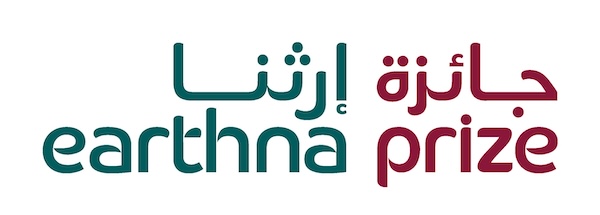
Twelve finalists, at the forefront of integrating traditional knowledge in solving global sustainability challenges, were selected from over 400 international applicants.
Doha, Qatar – February 27, 2025 – Earthna Center for a Sustainable Future, a member of Qatar Foundation (QF), is pleased to announce the 12 finalists for the inaugural Earthna Prize, an initiative launched in April 2024 to celebrate and support projects that integrate traditional knowledge and cultural heritage in addressing today’s most pressing environmental challenges.
Twelve finalists were chosen from more than 400 submissions, representing over 100 countries, underscoring a global dedication to community-driven environmental stewardship. The applications focused on four key areas: water resource management, food security, sustainable urbanism, and land stewardship.
Representing a diverse range of organizations—including NGOs, private entities, universities, and governments—the applications showcased widespread engagement in sustainability efforts. Notably, the highest number of submissions came from North America, East Africa, and South Asia.
“During the submission process, we witnessed an inspiring global response, with applications from all corners of the world, reflecting a powerful global awcknowledgment to preserve and adapt traditional knowledge for modern challenges,” said Dr. Gonzalo Castro de la Mata, Executive Director of Earthna.
“The broad participation highlights the growing worldwide recognition of sustainability and its significant impact, while the diversity of projects reveals the untapped creativity that must be nurtured to drive progress,” he added.
The Earthna Prize is awarded biennially through a rigorous selection process. A global review committee has selected 12 finalists, who will now be evaluated by a high-level jury. The four winners will be announced at the second Earthna Summit on April 22, 2025.
With a prize pool of US $1 million, winners may use the award to support the development, continuation, and scaling of their work.
Water Resource Management
Among the finalists is Tarun Bharat Sangh, a project in Northern India that enhances water security through the construction of over 15,000 traditional water harvesting structures like Johads and Pokhars.
Meanwhile, Project India by One Drop Foundation ensures safe water access, drives behavior change through Social Art for Behavior Change (SABC), and promotes economic empowerment, focusing on community leadership, gender equality, and entrepreneurship.
In Peru, Water Fund for Lima and Callao – Aquafondo is restoring natural infrastructure by integrating ancestral practices and modern engineering for water regulation ecosystems
And in Cameroon, Farmer Tantoh Foundation’s (formerly known as Safe Your Future Association) water conservation initiative promotes sustainable water management practices, including spring catchment protection and rainwater harvesting, directly benefiting over 250,000 people.
Food Security
Additionally, The Seeds of Change Initiative by Blooming World International in Kenya reaches over two million beneficiaries, combating food insecurity by reviving Indigenous vegetable cultivation and training youth and women in Good Agricultural Practices (GAP).
Thriving Fisheries, Thriving Oceans by Blue Ventures is a global initiative to support coastal communities in rebuilding traditional fisheries through locally managed marine areas, protecting marine biodiversity and enhancing food security for half a million people.
In Peru, traditional Sailing Fishing Vessels project by H2Oceanos preserves traditional sailboat fishing practices, ensuring sustainable marine livelihoods while minimizing environmental impact.
Land Stewardship
In India, the Stone Free Movement by theURVI Foundation promotes sustainable construction practices by reducing reliance on stone materials and offering eco-friendly, flood-resistant housing solutions.
In Chad and the Sahel, the Association des Femmes Peules Autochtones du Tchad (AFPAT) supports Indigenous pastoralist communities, improving land stewardship, food security, and water management through participatory mapping and agroecology.
Meanwhile, in Colombia, Fundación Suma Kausai Colombia by Wuasikamas Ëconeêrã aims to reduce the negative impacts of climate change on biodiversity and life on Earth by integrating Indigenous knowledge including Colombian communities of the Eperara Siapiadaara, Inga, Siona, and Cofán peoples.
Sustainable Urbanism
In Morocco, Ecodome Maroc revives traditional earthen construction techniques, blending them with modern technologies to create affordable, sustainable housing with a significantly reduced carbon footprint.
Finally, the Nubian Vaults project is addressing the severe housing crisis in the Sahel by reviving an ancient Nubian earth-based construction technique.
The Earthna Prize ceremony to unveil the four winners will be held on Tuesday, April 22, during the Earthna Summit in Doha. For more information about the Prize and registration for the Summit, visit: earthna.qa.
